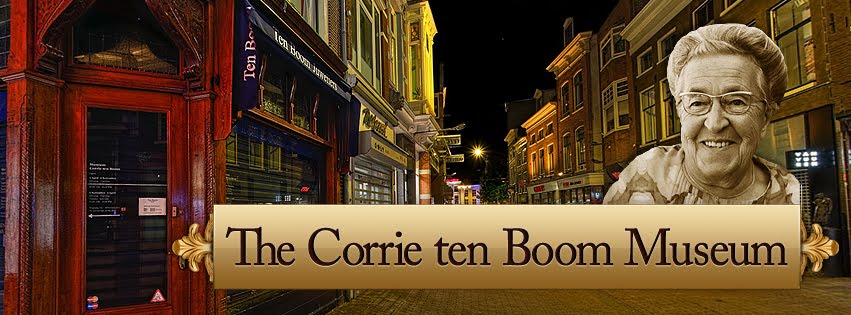While largely unfamiliar to most Jews, Corrie ten Boom is a well-known hero among believing Christians, a model of how Christians should act in dark times. Her private story of faith and heroism was depicted in the play "Corrie Remembers", staged last Sunday to a wide audience of Christians and Jews from all over northern Israel.
The one-woman show highlights the memories of Corrie ten Boom, one of the "Righteous among the Nations." Corrie's story remains little-known to Jews. However, the City of Afula and the Galilee Center for Studies in Jewish-Christian Relations at Yezreel Valley College worked to change that by bringing this drama to Israel.
Cornelia (Corrie) was raised in Holland, in a family of dedicated Christians who believed that the Jews were a people chosen by God. With the German invasion of Holland in 1940, the ten Boom's beliefs about Jews were put to the test. Asserting that God's people were always welcome in their house in Haarlem, they courageously made their home above their father's watch repair shop into a place for Jews and resistance members to hide, before being moved to safe houses in the country. One of the first Jews to stay there on a long-term basis was Meyer Mossel, a cantor from an Amsterdam synagogue.
A secret room was built in Corrie's bedroom where the Jews could hide in case the house was raided. The room was the size of a closet, built with a false wall and an air vent to the outside. When the house was indeed raided by the Gestapo in February of 1944, six people escaped detection by hiding in that tiny room. The ten Boom family and many of their friends were arrested that day. Most were eventually released, but Corrie's father remained in prison, where he died. Corrie and her sister Bessie were sent to Ravensbrück for their efforts, the notorious concentration camp for women near Berlin. Bessie died there, and Corrie was ultimately released due to a clerical error at the end of 1944.
Despite the cruelty that she endured, her faith remained resolute. Corrie would eventually dedicate herself to spreading the message of forgiveness and reconciliation she believed in. After the war she began a public speaking campaign all over the world. Corrie Ten Boom was honored by Yad Vashem as one of the Righteous Among the Nations in 1967 and was knighted by the Queen of the Netherlands in 1968. She passed away on her birthday in 1983 at the age of 91. Soon after her death, the ten Boom house in Haarlem was restored and opened as a museum in her honor.
"Corrie Remembers" is a powerful one-woman dramatization that has been performed hundreds of times around the globe. Susan Sandager portrays Corrie Ten Boom in the eighth decade of her life, remembering her younger years. Jews and Christians of all ages came to the show from Afula, Jerusalem, Karmiel, Nazareth and neighboring kibbutzim and small communities, all of whom were encouraged by the simple courage and love that Corrie ten Boom embodied.
After the show one woman said, "I thoroughly enjoyed Corrie Remembers... I vaguely knew the story, but the play brought it alive so well. I cried almost the whole way through. I left wondering if I had lived then, would I have found the courage to help Jews rather than 'mind my own business' as I do so often in today's conflicted times....Susie Sandager's portrayal of an old Dutch lady was amazing! Her message of support for Israel at the end of the evening was very powerful. Would that all our co-religionists in the Diaspora were as passionate in their support of Israel as this Christian woman."
Source: JPost
